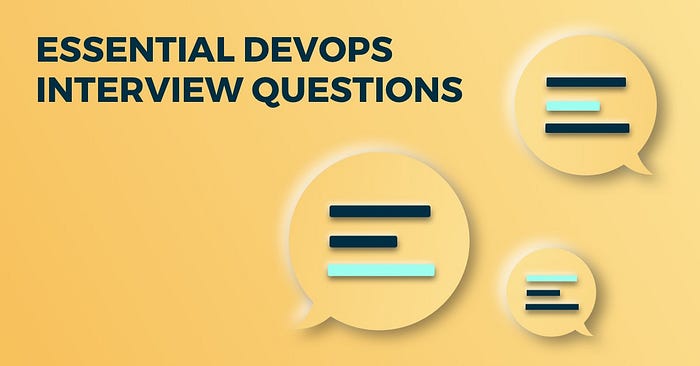
Introduction:
The field of DevOps is booming, with companies actively seeking experts to streamline software development and bridge the gap between developers and operations teams. Whether you’re considering a career transition or aiming to excel in a DevOps role, a strong understanding of DevOps principles and practices is crucial. In this blog post, we’ll explore the top six DevOps questions and provide detailed answers to help you enhance your knowledge and thrive in the world of DevOps.
1. What is DevOps, and what are its key principles?
DevOps is a software development methodology that emphasizes collaboration and communication between development and operations teams. Its key principles include collaboration, continuous integration and delivery (CI/CD), infrastructure as code (IaC), and monitoring. By adopting these principles, organizations can enhance software delivery speed and efficiency.
2. What are some commonly used tools and technologies in DevOps?
DevOps relies on a wide range of tools and technologies. Experience with cloud platforms like AWS, Azure, or GCP is highly valuable. Additionally, tools such as Git for version control, Docker for containerization, Jenkins and GitHub Actions for CI/CD, and Terraform for IaC are commonly used. Familiarity with these tools will empower you to streamline development and deployment processes.
3. What is the role of automation in DevOps?
Automation plays a crucial role in DevOps by eliminating manual processes and streamlining workflows. It enables tasks like code building, testing, deployment, and infrastructure provisioning to be automated, leading to faster and more reliable software releases. By leveraging automation, DevOps engineers can focus on higher-value activities and improve overall efficiency.
4. What is infrastructure as code, and how does it benefit DevOps?
Infrastructure as code (IaC) treats infrastructure provisioning and management as code. It offers several benefits, including consistency, repeatability, flexibility, and automation. By using tools like Terraform or Pulumi, infrastructure can be defined, versioned, and deployed programmatically. This approach reduces manual effort, enhances collaboration, and ensures infrastructure consistency across development, testing, and production environments.
5. What is a CI/CD pipeline, and how does it work? What’s the difference between continuous integration and continuous delivery?
A CI/CD pipeline automates the software delivery process, encompassing both continuous integration and continuous delivery. Continuous integration involves regularly merging code changes into a shared repository, running automated tests, and providing feedback to developers. Continuous delivery extends this further by automating the deployment of approved code changes to production or staging environments. This approach ensures that new features and bug fixes are quickly and reliably delivered to end-users.
6. What is containerization, and how does it benefit DevOps?
Containerization enables the creation and deployment of applications in isolated, lightweight containers. It brings several benefits to the DevOps landscape, including consistency, portability, scalability, and automation. Tools like Docker provide a standardized environment for applications to run consistently across different platforms, reducing compatibility issues and easing the deployment process.
Conclusion:
As the demand for DevOps engineers continues to rise, having a strong understanding of DevOps principles and practices is essential for success. In this blog post, we’ve explored the top six DevOps questions and provided detailed answers to enhance your knowledge. By embracing collaboration, automation, infrastructure as code, CI/CD pipelines, and containerization, you’ll be well-equipped to streamline software development processes and bridge the gap between development and operations teams. Now, armed with this knowledge, you can confidently embark on your DevOps journey and make a significant impact in your organization.


No comments:
Post a Comment